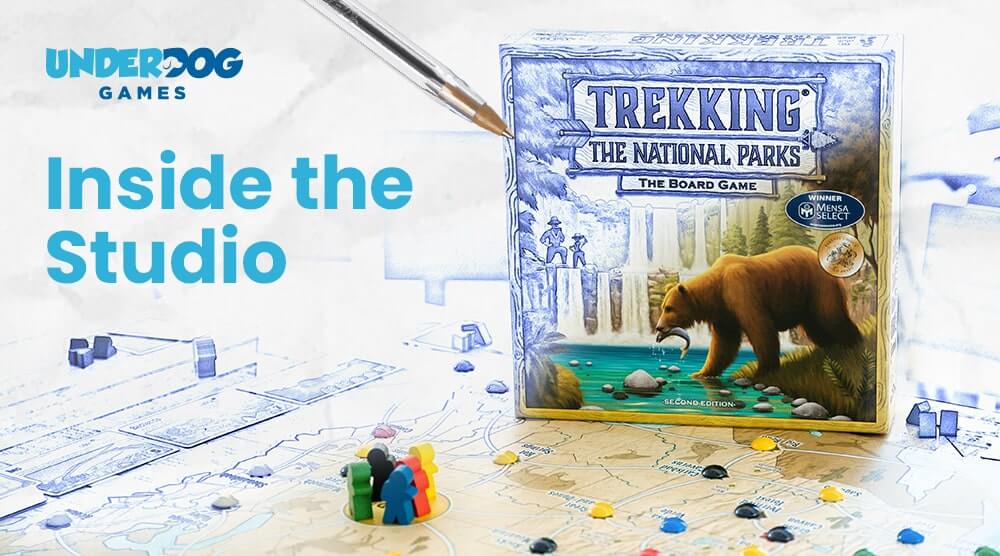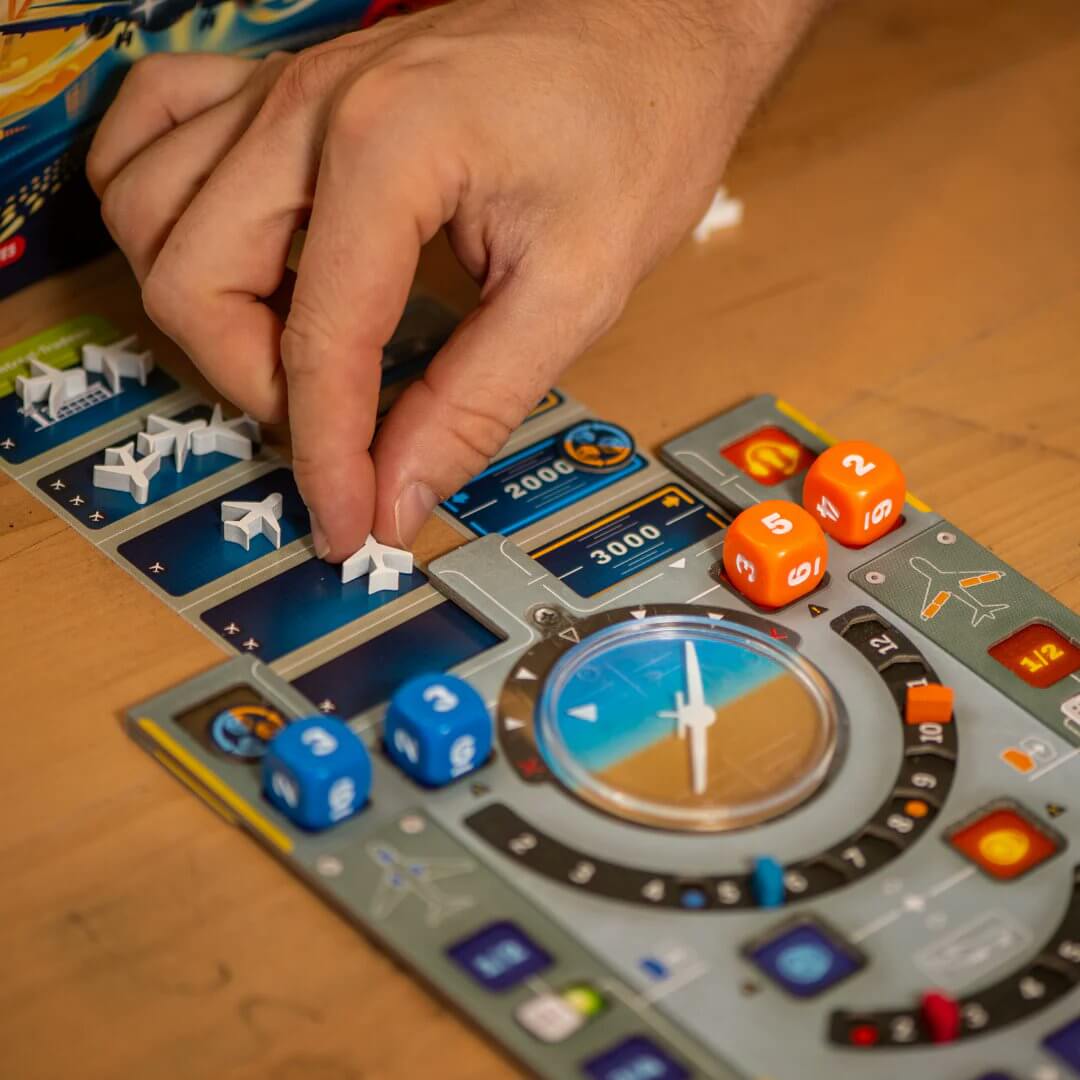Welcome to this week's behind-the-scenes post.
Lessons from Sky Team
The game Sky Team just won the most prestigious board game award in the world, the Spiel Des Jahres. I've been studying it and I agree it's special, and I think it may hold lessons for how we make games at Underdog. I'm writing to share some thoughts about that. Let's see what you think:
What strikes me most about the game is the interface, which is among the best I've seen. It excels in at least three ways:
- It evokes the theme strongly. In the game, the two players are pilot and co-pilot, trying to land a plane. The interface looks like a control panel in a cockpit:
- The actions you take through that interface reflect the actions you would expect to take as a pilot. The match between interface, expectation, and action is closer than for most games, especially games that are so rules-light (and matching expectations allows the rules to feel lighter than they otherwise would).
- The interface makes your options obvious on each turn, those options are simple to execute (just place a die on a space with a matching color), and consequential (each placed die ratchets the tension).
At Underdog, we already place a lot of value on interfaces, but we've never made an interface like Sky Team's, meaning an interface that is ALREADY an action interface in real life.
Beyond the interface, two features of the game's scenario system stand out:
- It's easy to set up and understand each scenario. There's not as much administrative overhead as there is in other scenario games. Despite this, each scenario feels different and interesting.
- The easiest scenarios create a feeling of tension while simultaneously allowing players to win more often than lose. There's a kind of perceptual magic trick in this I don't fully understand. You get the fun of wondering if you're going to lose, AND the fun of usually winning, which is a great introduction to the game.
Our games don't even HAVE scenario systems, and one reason is most are too unwieldy for a big swath of our customers, but Sky Team shows it's possible to avoid this problem. That's a big design lesson. Scenarios are an obvious avenue to explore in our quest to make our games more replayable.
Thoughts?





